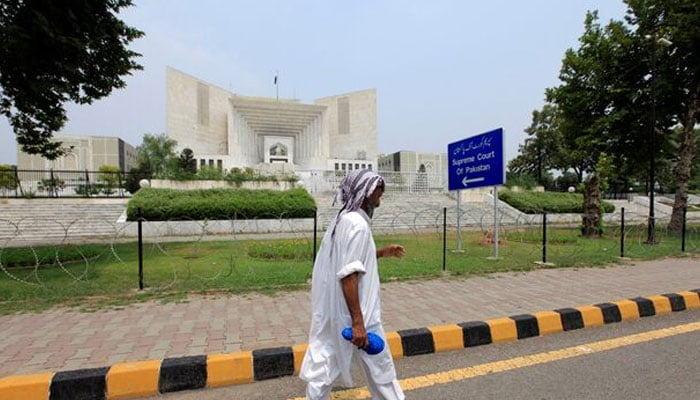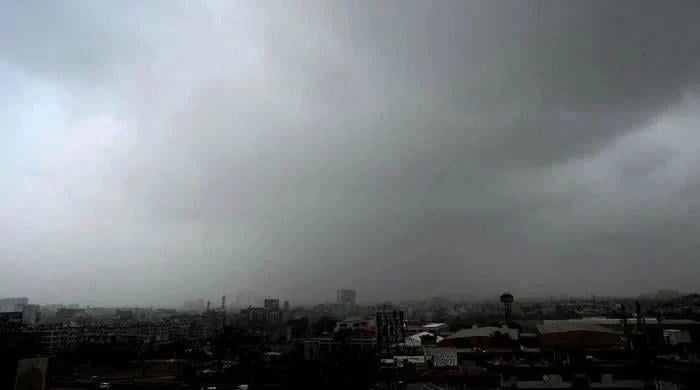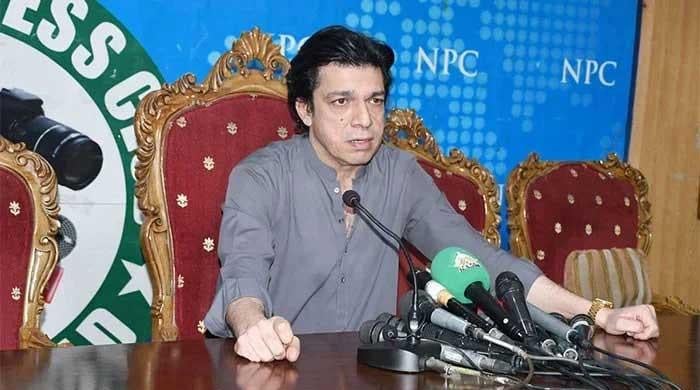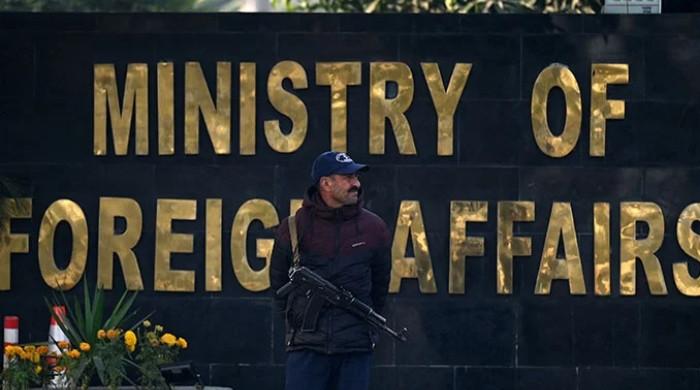PTI moves apex court against SC Practice and Procedure Ordinance
PTI chairman requests SC to declare "illegal" and "annul" all decisions of Practice Procedure Committee in plea
September 26, 2024

- New Practice and Procedure committee be suspended, says plea.
- Plea asks that relevant committee's decisions be declared illegal.
- President, federal govt approved much-debated ordinance last week.
The Pakistan Tehreek-e-Insaf (PTI) on Thursday moved the apex court against the Supreme Court (Practice and Procedure) Amendment Ordinance 2024, requesting for it to be declared "unconstitutional".
The constitutional petition, filed by PTI Chairman Barrister Gohar Khan, requested that all the decisions of the Practice Procedure Committee — taken after the approval of the ordinance — should be declared "illegal" and "annulled ".
The newly-constituted practice and procedure committee should be suspended from work for as long as the constitutional petition is pending, read the plea. It added that the old committee should be allowed to function during the petition against the ordinance.
The PTI petition has been filed a week after the president and federal government approved the much-debated ordinance.
The federal cabinet adopted the ordinance "through a circulation" after the Ministry of Law had sent it to the prime minister and cabinet on the night of September 19.
The ordinance said the court bench would look at the cases keeping in view the fundamental human rights and public importance.
As per the ordinance, each case will be heard on its turn otherwise reason will be furnished for its taking out of turn.
“Each case and appeal will be recorded and its transcript will be prepared, which will be available to the public,” it also stated.
Gohar's petition — that includes the federation, law ministry and President Asif Ali Zardari as parties — stated: "... pending the disposal of the titled Constitutional Petition, the operation of the Impugned Ordinance may kindly be suspended.
"Further, the committee purportedly re-constituted pursuant to the Impugned Ordinance may kindly be restrained from constituting benches and fixing any cases before them and the lawfully constituted Committee under Supreme Court (Practice and Procedure) Act, 2023 consisting of the Chief Justice of Pakistan and the two next senior most judges may be allowed to continue functioning."
It mentioned that the impugned ordinance is contrary to the judgement of the full court of the SC in the case of Raja Amer vs. Federation of Pakistan (PLJ 2024 SC114) (the “Raja Amer Case”); ultra viresArticles 4, 10A, 19A, 25, 89, 175(3), and 191 (and others) of the Constitution of Islamic Republic of Pakistan, 1973 (the “Constitution, 1973”).
The petition maintained that the ordinance violates the principles of separation of powers and independence of the judiciary that are salient features of the Constitution and guaranteed by, inter alia Articles 4 and 175(3).
"Therefore, is liable to be struck down," it added.
The plea stated that temporary legislation and unclear reasons raised questions regarding the amendment ordinance.
The right of public to get information is also affected by the ordinance, it said.
"The rights of access to justice and fair trial also require a judiciary that is separate and independent of the Executive. The Impugned Ordinance is a direct attempt to interfere, alter, and control the inner working of the Supreme Court and is thus unconstitutional and liable to be struck down," it mentioned.
The plea stated that if the ordinance is upheld or accepted as valid law, it would amount to accepting that on any occasion where a case in which the government is particularly interested is fixed before the SC, it will have the power to alter and amend how and when the case is to be fixed and before whom, through exercise of its temporary or permanent legislative power.
"This is a gross violation of the independence of judiciary, and guarantee of fair trial, and is clearly unconstitutional," it stated.
The ordinance, therefore, having been issued in excess of the legislative power constitutionally granted, is ultra vires the Constitution and is liable to be struck down, stated the petition.
It also highlighted that Chief Justice of Pakistan Qazi Faez Isa replaced the second senior most judge of the apex court on the committee with the fourth senior most judge on the same day as the publication of the ordinance in the official gazette.
"Thus, the second and third most senior judges of the Committee were overlooked in favour of the fourth most senior judge. No reasons whatsoever were provided for the change," it stated.
It added that the government does not have the constitutional authority to set any mandatory criteria as to the order in which the SC may hear cases.
"This would have the effect of giving the Government the power to choose when and which cases will be fixed giving it de facto immunity from cases it wants to avoid being heard in the Supreme Court," read the plea.









